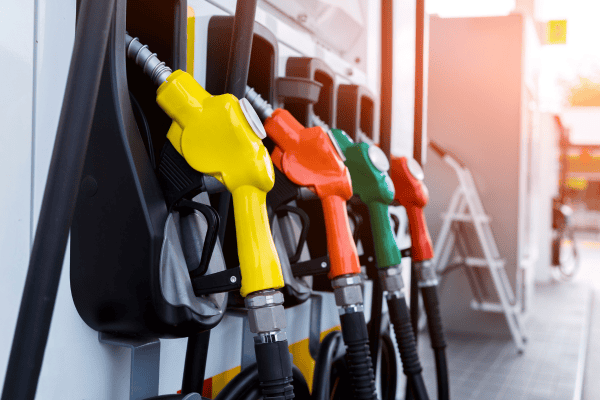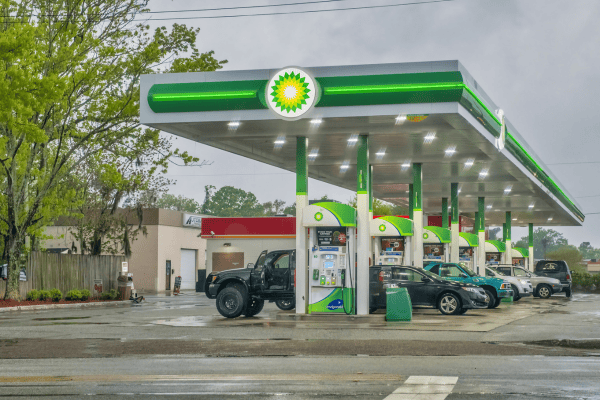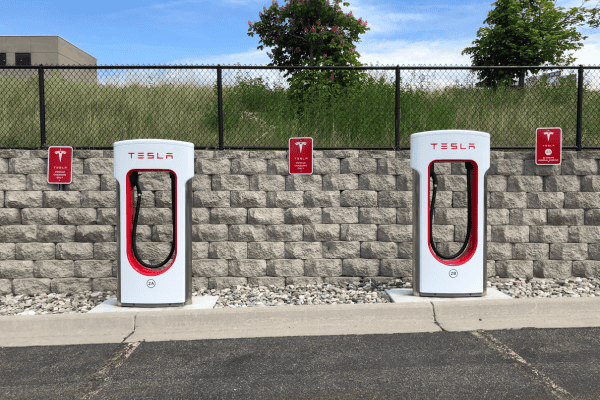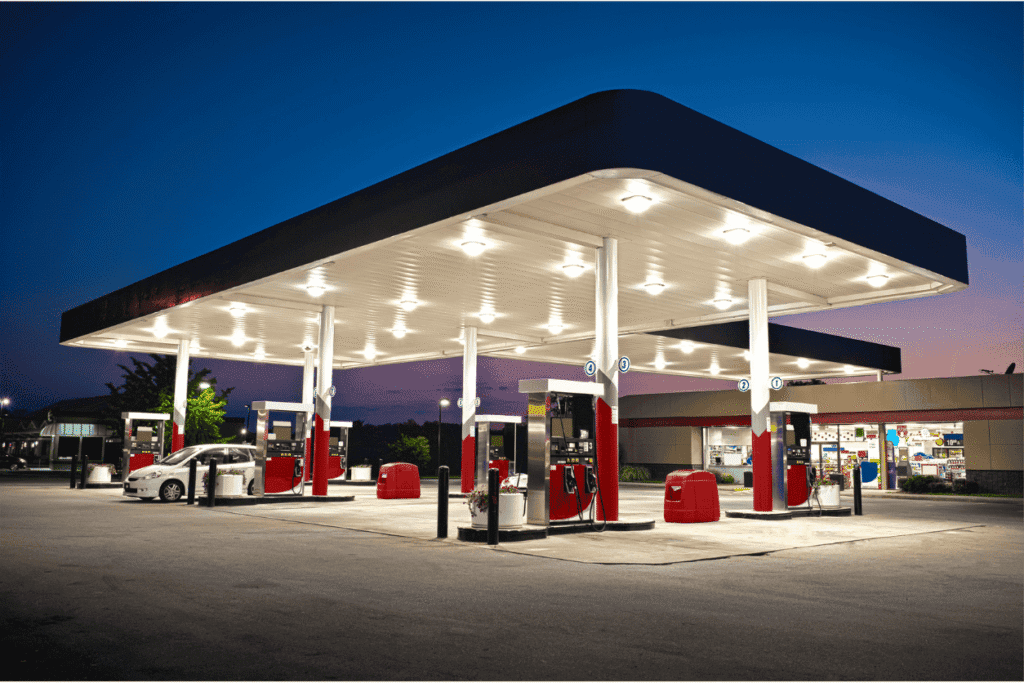- Key Takeaways
- Develop a Comprehensive Business Plan
- Legal and Regulatory Requirements
- Securing Funding
- Acquiring Property and Equipment
- Finding Reliable Suppliers
- Insurance and Risk Management
- Marketing Your Gas Station
- Managing Daily Operations
- Preparing for Future Trends
- Moving Forward
- Final Thoughts
- Frequently Asked Questions
Are you looking for business that combines steady cash flow, real estate, and community involvement in one?
Then have you considered opening a gas station?
Sure it sounds like alot of work (which it is) but how often do people pump gas in their cars? All the time.
This means consistent traffic with consistent cash flow, and the ability to profit from other convenience and add on services.
Add on that operations can be standardized once its all figured out leaving you to scale into multiple locations, theres alot to love.
To start a gas station, you need a thorough plan, funding, and the right location. This guide will help you with all the essential steps, including legal requirements, product offerings, and daily management. We’ll even recommend our best picks for time tracking tools to handle the unique operations of a gas station.
By the end, you’ll know how to start a gas station successfully even if your’re a beginner.
Key Takeaways
- Start with a solid business plan covering market analysis, cost estimation, and location selection to guide your gas station venture.
- Understand and comply with legal and regulatory requirements, including permits, licenses, and environmental compliance to operate smoothly and legally.
- Focus on diversifying products and services, implementing effective marketing strategies, and ensuring strong daily operations for long-term success.
- Time trackers and workforce management software can help manage staffing, inventory and inform decisions to improve profitability. We like Deputy, Homebase, and Quickbooks as great options.
Develop a Comprehensive Business Plan

The secret to a successful gas station venture starts with a well-crafted business plan. Your business plan is your roadmap, detailing your vision, strategy, and the steps to achieve your goals.
Key parts include objectives, market analysis, and financial projections. While it sounds boring and tempting to skip, you will need it for securing financing and organizing operations effectively anyway.
Resources like Toast’s Gas Station Business Plan can be helpful for this process.
Market Analysis
Understanding your market is the difference between hitting the ground running and running into a brick wall before you’ve even started. To execute market analysis properly, you should:
- Conduct thorough market research to identify competitors and their offerings.
- Pinpoint market gaps and opportunities.
- Include site analysis to assess zoning regulations and local competition.
Continuous education about market trends will help you adapt to changing consumer preferences and stay ahead of the competition.
Location Selection
Choosing the right gas station location can make or break your gas station. To nail down that perfect location, think about the following:
- Does the spot maximize visibility and customer traffic?
- Is it close to major traffic routes and amenities? What are the traffic patterns in your area?
- Where is your local competition?
- How acessibile is it? Is there easy entry and exit points for drivers?
Conduct through market research to understand the surrounding area and its dynamics.
Cost Estimation
A big part of your business plan is estimating the costs. Expenses can range from $250,000 to $2 million, depending on location and business model. Environmental compliance, land acquisition, and underground storage tanks are a big part of the costs.
Gas station franchises often require significant cash, ranging from $20,000 to over $1,000,000, depending on the brand and location. Not cheap.
The more accurate your cost estimation, the easier it is to secure funding and plan your financial strategy.
Product and Service Offerings
Diversifying your product and service offerings can significantly boost revenue. While fuel sales are your bread and butter, most profit margins often come from convenience store sales. These are your profit maximizers!
So consider offering a variety of products and services such as:
- food, drinks, and seasonal items like coffee, snacks, hot food, etc.
- car washes
- propane exchange
- lottery tickets
- EV charging stalls
- Amazon pickup lockers
- Partnering with food franchises, which can attract more customers and increase sales.
Legal and Regulatory Requirements
Navigating legal and regulatory requirements is equally important. Compliance with federal, state, and local regulations by obtaining the necessary permits and licenses mean smooth operations all by the books.
Adhering to environmental regulations, including assessments and obtaining permits, is equally important.
Forming a Legal Entity
You will want to choose the right business structure for liability protection and business taxes purposes. Common structures include:
- Sole proprietorship
- Partnership
- LLC
- Corporation
LLCs are often preferred for their liability protection and tax benefits.
The formation process involves consulting a business attorney, filing articles of organization, and obtaining an Employer Identification Number (EIN).
Permits and Licenses
As you would imagain, gas stations require several licenses and permits to operate legally, including for:
- fire safety
- environmental compliance
- fuel storage
- alcohol and tobacco sales, if you offer those products
- Workers’ compensation insurance to protect employees.
Environmental permits can cost between $1,000 and $10,000, depending on the state!
Environmental Compliance
To comply with environmental standards and regulations, a gas station will need:
- a Phase 1 Environmental Assessment to assess the site’s environmental history
- to comply with regulations for storing and handling fuel
- install equipment to prevent leaks and spills
- undergo regular inspections
All equipment must meet local safety and environmental regulations.
Securing Funding

How will you fund your gas station? Initial options include:
- Personal savings
- Bank loans
- SBA loans
- Franchise financing
Building business credit and opening a business bank account can help separate personal and business finances.
Once again, you will need that well-structured business plan to secure loans from any lender and attract investors.
Traditional Bank Loans
Traditional bank loans are a common funding option. Lenders typically require a strong business plan, proof of business experience, and a credit score over 700. Be prepared to guarantee personal assets, such as property or equipment, when applying for a conventional loan.
SBA Loans
SBA loans are an attractive financing option because:
- They generally offer lower down payments and better interest rates than traditional loans.
- The small business administration backs up to 85% of the loan, reducing risk for lenders.
- This backing makes it easier for startups to obtain financing.
Alternative Funding Options
If traditional bank loans or SBA loans are not feasible, explore alternative funding options such as:
- business credit cards or line of credit – preferably with low APR so you can better manage startup costs
- personal savings
- loans from friends or family (if you dare)
Acquiring Property and Equipment
Next up, you need to acquire the right property and equipment which involves property acquisition, equipment purchase, and documentation management.
Property Acquisition
As mentioned in the market analysis, location location location is key. Consider factors such as traffic patterns, accessibility, and proximity to major amenities.
Future growth potential and accessibility to major roads or highways should also be key factors.
Equipment Purchase
Usually, the equipment is leased from the property owner or franchise. Regardless, be sure your gas tanks and gas pumps have the following:
- compliance with state regulations before acquiring them from gas suppliers.
- ownership rights of existing gas tanks and pumps.
- a maintenance history that shows compliance with state regulations.
Documentation Management
Maintain organized documentation, including purchase agreements and maintenance records, to streamline operations and ensure compliance with regulations.
Finding Reliable Suppliers

To get your operations running smoothly, you’ll need reliable suppliers, and reliable deliveries. This means securing fuel supplier contracts and convenience store vendors. If you partner with a franchise, many of these will be standardized for you.
Fuel Supplier Contracts
When selecting fuel suppliers, the factors to think about are pricing, delivery schedules, and fuel quality. Have a business attorney negotiate favorable terms and review the contract before signing.
Convenience Store Vendors
You want vendors that deliver products for your gas station reliably, and have good product quality. Maintaining good contacts with local wholesale providers will help you coordinate resupply and delivery dates.
Don’t forget to check deliveries for accuracy upon arrival.
Insurance and Risk Management
Nobody likes dealing with insurance, but it’s necessary to protect your gas station from various risks. Comprehensive coverage via general liability insurance and specialized policies keep your business viable and protected.
General Liability Insurance
General liability insurance protects against liabilities such as slip and fall accidents, and other third-party injuries and property damage.
Specialized Policies
You may need specialized policies given the unique nature of the gas station business. For example, environmental liability insurance addresses potential contamination issues.
Marketing Your Gas Station

Like any business, you need eyeballs on your gas station for customers to come knocking. A well-structured marketing strategy that includes an online presence, signage and promotions, and loyalty programs will attract and retain buying customers.
Of course, partnering with a popular franchise like Shell, Chevron, Exxon-Mobil, etc. or a fast-growing C-store chain (7-Eleven, Circle K) gives owners instant name recognition and makes marketing so much easier.
Online Presence
A strong online presense is a great way to get visibility and customer engagement. This will also be one of your strongest marketing ROI. Examples include:
- A website that is SEO optimized for search
- A Google Business Profile with updated Google Maps info
- Social media acounts with Facebook, Instagram, Youtube, etc.
Signage and Promotions
Effective signage is also worth considering. For examples, highway exit signs and billboards with promotions and special offers can entice customers.
Loyalty Programs
Implementing a loyalty program helps retain existing customers and build a loyal customer base, which is always cheaper than acquiring new ones. A simple rewards program, like a punch card, can effectively encourage repeat visits without alot of upfront investment.
To determine how much to spend on customer retention, analyze your business’s specific data and adjust accordingly.
Managing Daily Operations
Once you secure your gas station, making sure it runs like a well oiled machine is key. When dealing with long hours, frequent shift changes, strict cash-handling rules, and tight margins, being successful means:
- Hiring employees who align with your values and prioritize excellent customer service.
- Establishing clear operational goals.
- Regularly reassessing strategies to address potential challenges.
This is where staying updated on industry developments and adding key tech like time trackers or workforce management platforms can help overcome operational challenges and improve profitability.
Staff Hiring and Training
The hiring process isn’t the most glamorous process. It includes job descriptions, application screening, interviews, and background checks. Consider hiring for various positions, such as managers, cashiers, maintenance workers, and security personnel.
Train employees on POS system operation, customer service techniques, and emergency handling procedures for smooth operation.
Inventory Management
Efficient inventory management means shelves are never empty and customers find the products they want. To manage restocking effectively and maximize your profits, you should use workforce software to organize inventory and maintain daily records.
These tools can also make it easier to keep digital records of purchase agreements and maintenance history which streamlines operations and improves compliance.
Security Measures
Given the assessible nature of gas stations, you don’t want to skimp on the security. You will need to:
- Install security cameras and shatter-proof windows
- Establish emergency protocols and train staff on them to ensure a prompt and effective response
Using a Time Tracker Tool to Manage Operations
Using a time tracker tool or workforce management software can really help with staffing and inventory management.
From a staffing perspective, time trackers can:
- create and manage schedules for your team
- streamline clocking in and out
- enhance communications between team members
- streamline payroll
Plus, these tools provide real-time insights on what the gas station is doing like monitoring fuel inventory and sales, so you can make quick decisions to streamline operations.
Some of our favorites that really address the needs of a gas station business are:
- Deputy
- Tracks your sales, and builds schedules based on sales forcasts as well as availability and skills
- Integrates well with most POS/payroll stacks used in convenience retail (Square, Clover, ADP, etc.)
- works best for multi store businesses
- Homebase
- Built-in scheduling, team messaging, and basic payroll
- Has a nice free tier for budget conscious owners
- Quickbooks Time
- Has a simple kiosk mode for fast easy clockins
- If you use Quickbooks for payroll, data flows in easily and makes payroll super simple
Regardless of the brand you choose, you want software that integrates with your point-of-sale systems and automated tank gauges for efficient operation management and will adapt to future growth and additional services.
Preparing for Future Trends

Remember what happened to Blockbuster. If you don’t stay ahead of future trends, long-term success can be in jeopardy. And the future is sustainable practices when its cost effecient.
Adopting sustainable practices enhances appeal to eco-conscious customers and can help your gas station stand out. Consider items like:
- Water conservation methods, such as low-flow fixtures and rainwater harvesting – benefits your gas station environmentally and economically.
- Energy-efficient technologies, like LED lighting and smart thermostats – significantly reduce operational costs.
- Electric vehicle (EV) charging stations – promotes eco-friendliness and attracts EV owners; Analyze the benefits costs of EV stations before moving forward.
- Waste management programs – reduce disposal costs and enhance your station’s environmental image.
Don’t forget to engage with your local community and stakeholders to gather more ideas and garner support during the implementation phase.
Moving Forward
Now that you are up and running and living the dream, you want to keep the momentum going by constantly improving and managing risk. This means implementing your business plan effectively.
For example, you can:
- Offer promotions on paired products which increase customer satisfaction and boost sales.
- Improving employee retention through competitive wages, benefits, and advancement opportunities that empower your team.
Continuous Improvement & Scaling
In general, you will always review these key strategies for improving your gas station’s operations:
- Regularly assessing daily operations to maintain efficiency and enhance profitability.
- Accurate inventory management to optimize stock levels and reduce wastage.
- Implementing a comprehensive marketing strategy to attract customers and differentiate your gas station from competitors.
Gas stations generally have decent profit potential if carefully planned and well run. In fact, with the right strategies, most gas stations operate successfully for decades, either as solo owners or franchises.
Once you dial in your site’s processes (fuel pricing algorithms, shift scheduling, shrink-control, vendor relationships), you can easily add more stations in a largely rinse-and-repeat cycle – perfect for owners looking to build a small chain.
Final Thoughts
Starting a gas station is a multifaceted endeavor that requires careful planning and execution. From developing a comprehensive business plan to navigating legal requirements, securing funding, and managing daily operations, each step is critical for success.
By staying ahead of future trends and continuously improving your strategies, and using digital tools like time trackers and workforce software, you can build a thriving gas station business. Now, it’s time to take action and fuel your entrepreneurial journey!
Frequently Asked Questions
How much does it cost to start a gas station?
Starting a gas station can cost anywhere from $250,000 to $2 million, depending on factors like location and business model. It’s a significant investment, so make sure to plan accordingly!
What permits and licenses are required to operate a gas station?
To operate a gas station, you’ll need permits for fire safety, environmental compliance, and fuel storage, plus possibly additional licenses for selling alcohol and tobacco. It’s essential to check local regulations to ensure you have everything covered!



Have a burning question about time trackers?
Take our 3 minute quiz to learn how we can best help you.
No Sales. No Fluff. No Pressure.